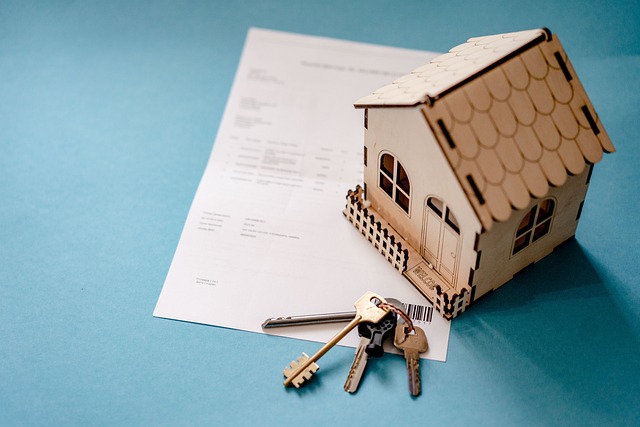Rent to Own Homes: A Comprehensive Guide to Alternative Homeownership
Rent to own homes offer a unique path to homeownership for those who may not qualify for traditional mortgages or need time to build their credit. This alternative arrangement allows potential buyers to rent a property with the option to purchase it in the future. Understanding how rent to own agreements work can help you decide if this approach aligns with your homeownership goals.

During the rental period, the tenant has the opportunity to improve their credit score, save for a down payment, and get a feel for the neighborhood before committing to purchase. This arrangement can be beneficial for both parties, as sellers may find tenants who are more invested in maintaining the property, while buyers gain time to prepare for homeownership.
What are the benefits of rent to own homes?
Rent to own homes offer several advantages for potential homebuyers. One of the primary benefits is the ability to lock in a purchase price, protecting against future market increases. This can be particularly valuable in rapidly appreciating real estate markets. Additionally, renters have the chance to “test drive” the home and neighborhood before making a long-term commitment.
For those with less-than-perfect credit, rent to own agreements provide time to improve credit scores and save for a down payment. This can make homeownership more accessible to individuals who might otherwise struggle to qualify for a traditional mortgage. Moreover, some agreements allow a portion of the rent payments to be credited towards the purchase price, potentially reducing the overall cost of buying the home.
What should you consider before entering a rent to own agreement?
Before entering a rent to own agreement, it’s crucial to carefully evaluate several factors. First, review the terms of the contract thoroughly, preferably with a real estate attorney. Pay close attention to the option fee, which is typically non-refundable and grants you the right to purchase the property later. This fee can range from 1% to 5% of the home’s purchase price.
Consider the agreed-upon purchase price and how it compares to current market values. While locking in a price can be beneficial in appreciating markets, it could be disadvantageous if property values decline. Additionally, understand your responsibilities regarding maintenance, repairs, and property taxes during the rental period, as these can vary depending on the agreement.
Are there risks associated with rent to own homes?
While rent to own homes can offer a path to homeownership, they also come with potential risks. One significant risk is the possibility of losing money if you decide not to purchase the property or are unable to secure financing when the option period ends. In such cases, you may forfeit the option fee and any extra rent payments made towards the purchase.
Another risk is the potential for the property owner to face foreclosure or financial difficulties during the rental period, which could jeopardize your agreement. To mitigate this risk, it’s advisable to research the property owner’s financial situation and ensure they have a clear title to the home before entering into an agreement.
How do you find legitimate rent to own home opportunities?
Finding legitimate rent to own home opportunities requires diligence and research. Start by working with a reputable real estate agent who has experience with rent to own transactions. They can help you navigate the process and identify potential properties. Online real estate platforms and local classifieds may also list rent to own opportunities.
When considering a rent to own property, always verify the homeowner’s credentials and the property’s status. Conduct a title search to ensure there are no liens or other issues that could complicate the future purchase. Be wary of deals that seem too good to be true, as they may be scams targeting aspiring homeowners.
What are the financial considerations of rent to own homes?
The financial aspects of rent to own homes can be complex and require careful consideration. Typically, rent payments in these agreements are higher than standard market rates, with the excess often going towards the future purchase of the property. It’s important to understand how much of your monthly payment is being credited towards the purchase and how this will affect the final price.
| Cost Component | Typical Range | Notes |
|---|---|---|
| Option Fee | 1% - 5% of purchase price | Non-refundable, grants right to purchase |
| Monthly Rent | Market rate + 15-25% | Extra often credited to purchase |
| Purchase Price | Agreed upon at contract signing | May be above current market value |
| Maintenance Costs | Varies | May be tenant’s responsibility |
Prices, rates, or cost estimates mentioned in this article are based on the latest available information but may change over time. Independent research is advised before making financial decisions.
Additionally, consider the costs associated with eventually purchasing the home, such as closing costs, appraisal fees, and potential repairs or renovations. It’s crucial to have a clear financial plan in place to ensure you can qualify for a mortgage when the time comes to exercise your purchase option.
Rent to own homes can offer a unique opportunity for aspiring homeowners to work towards property ownership. By understanding the process, benefits, risks, and financial implications, you can make an informed decision about whether this alternative path to homeownership aligns with your goals and circumstances. As with any significant financial decision, it’s advisable to consult with real estate and financial professionals to guide you through the rent to own process.






